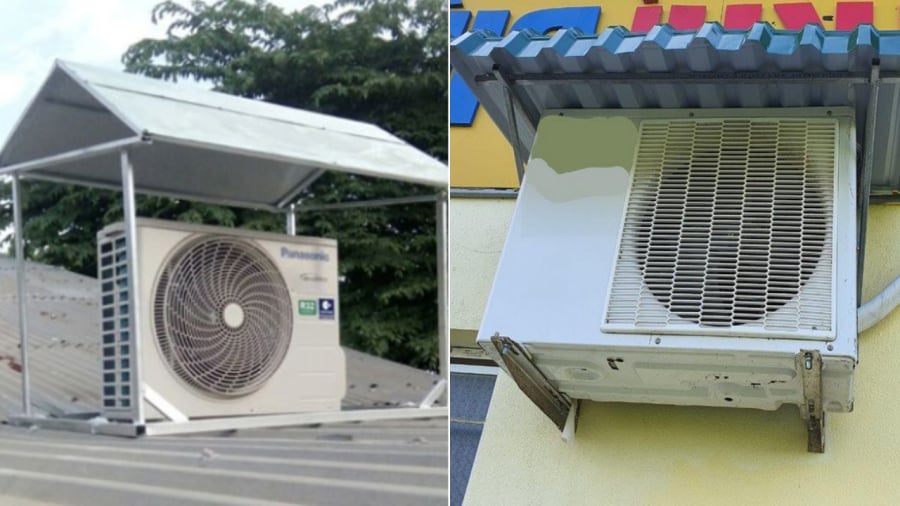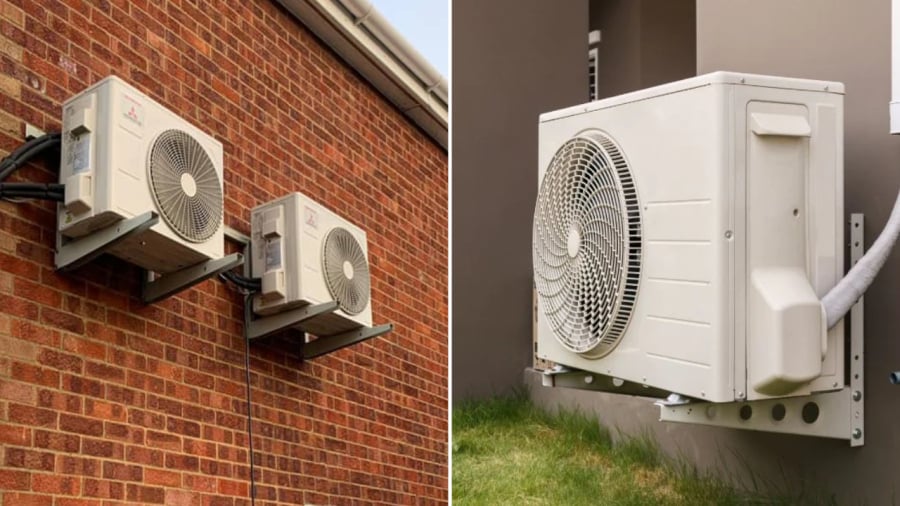Outdoor air conditioner unit, do you need to cover it when it rains?
An air conditioner is an important electrical device for many households. It helps to cool down in the summer, keep warm in the winter, and sometimes it is used to reduce humidity in the house when it is damp outside. An air conditioner is a valuable and energy-consuming device, so its use and maintenance are very important. It not only helps the equipment to operate well and prolong its lifespan but also helps to save electricity.
An air conditioner typically consists of two main parts: the outdoor unit and the indoor unit (also known as the condenser unit and the evaporator unit). The indoor unit is installed inside the house, while the outdoor unit, which is responsible for dissipating heat, is installed outside, helping to transfer the hot air from the room to the outside.
Because the outdoor unit is installed outside, many people have a question of whether it needs to be covered during rainy weather.

According to air conditioner technical experts, excessively covering the outdoor unit can affect its operation. A tightly covered outdoor unit cannot release heat to the outside environment, reducing the equipment’s lifespan, affecting the cooling capacity of the indoor unit, and also increasing electricity consumption.
According to the design of manufacturers, air conditioner outdoor units can withstand various weather conditions, including heavy rain. Therefore, it will not easily be damaged when exposed to rain. However, users also need to pay attention to the installation position of the outdoor unit. If the unit is installed too low, near the ground, the equipment may be flooded on rainy days. In that case, the air conditioner will not be able to function properly. Therefore, it is recommended to install the outdoor unit in dry areas, away from the ground to avoid flooding. The area around the outdoor unit should be well-ventilated to ensure heat dissipation.
Where is the best position to install the outdoor unit?
The outdoor unit of the air conditioner should be installed at least 10 cm away from the wall. Both sides of the unit should have a minimum clearance of 0.24m. The minimum distance between the outdoor unit and the opposite wall should be 60cm.
Avoid installing the outdoor unit in a place where there is direct wind. Strong wind blowing into the unit will create a significant resistance force for the fan, making the equipment operate inefficiently and consume more electricity.

In addition, it is recommended to avoid placing the outdoor unit facing other electrical devices, such as the outdoor unit of another air conditioner.
Especially, the outdoor unit must be installed lower than the indoor unit for the air conditioner to function properly. If the outdoor unit is installed higher than the indoor unit, the technician will have to design a good oil trap. Note that the distance between these two parts should not exceed 8 meters.
































